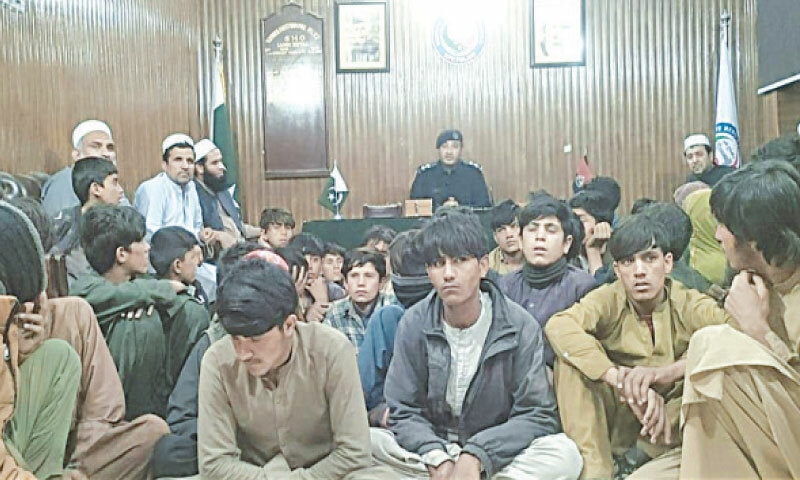Monitoring Desk
In a move driven by humanitarian concerns, Pakistani authorities on Sunday repatriated 50 Afghan children, including 17 girls, through the Torkham border following the intervention of a tribal jirga. The minors had been detained after illegally crossing the border at night, allegedly to smuggle goods under the cover of darkness.
According to local police official Adnan Khan, the children — most under the age of 10 — had no legal travel documents. “We were prepared to proceed under Section 14 of the Foreigners Act,” he said, “but we accepted the jirga’s request to release them without legal action, given their age and vulnerable status. The jirga emphasized they should not be jailed.”
The five-member jirga was led by Tehsil Council Chairman Shah Khalid Shinwari, who said an organized smuggling network was exploiting Afghan children to transport a variety of goods across the border — including local and foreign products and, in some cases, narcotics.
Sources at the border estimate that 700–800 Afghan children are regularly involved in cross-border smuggling. They reportedly earn Rs5,000–6,000 per trip smuggling goods like cigarettes, chocolates, and toiletries from Afghanistan into Pakistan, and Rs200–400 per trip for goods moved in the opposite direction, including sugar, juice, and dairy products.

Farman Shinwari, former president of the Torkham Labourers and Daily Wagers Association, said poverty and lack of opportunities in Afghanistan have pushed many children into this dangerous and illegal work. “After the Taliban takeover in 2021, Afghan authorities had cracked down on these networks and enrolled many children in schools and seminaries, but most escaped and rejoined the smuggling operations due to extreme economic hardship.”
He added that many of the children come from families evicted years ago from informal settlements in Bacha Maina on the Pakistani side, where cross-border smuggling had long been a livelihood for generations.
Another local leader, Fameedullah, recalled that before the enforcement of strict visa rules in 2016, thousands of Afghan children worked as porters at Torkham. Some even risked their lives hiding under vehicles to evade arrest. Their numbers have now fallen to 700–800 due to tighter border controls.
Meanwhile, Torkham’s immigration authorities on Monday resumed allowing Afghan nationals holding Tazkira (Afghan national ID cards) to return home after a six-day delay caused by a technical fault in the computerized immigration system.
The border had reopened on March 19 following a 27-day closure negotiated through a jirga, but only Afghans with valid visas were initially allowed to cross. This led to frustration and protests by Tazkira holders, who briefly blocked vehicular traffic on Sunday evening.
The protest ended after authorities assured the group they would be allowed to return soon. Immigration booths reopened Monday afternoon, prompting a large, jubilant crowd of Tazkira holders to cross into Afghanistan. While official figures weren’t available, border officials reported a significant surge in departures.